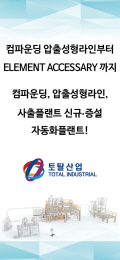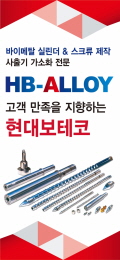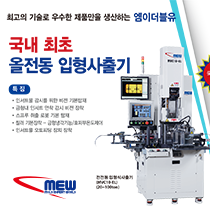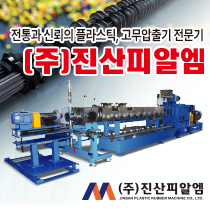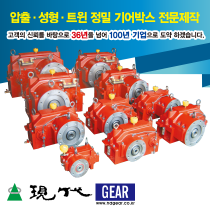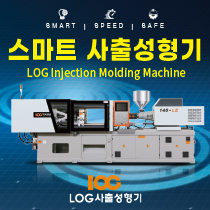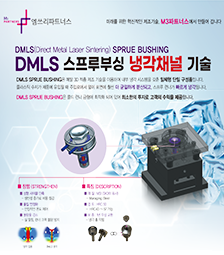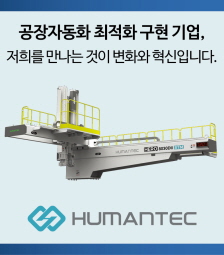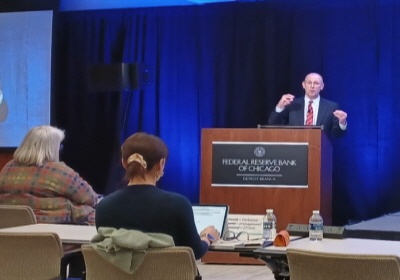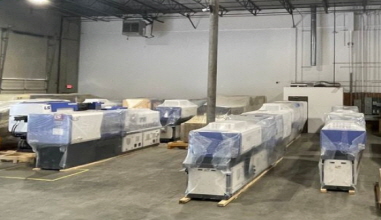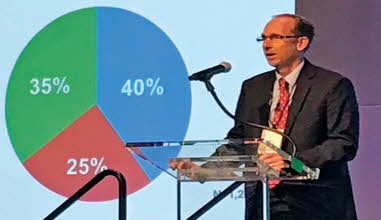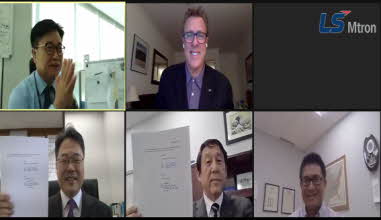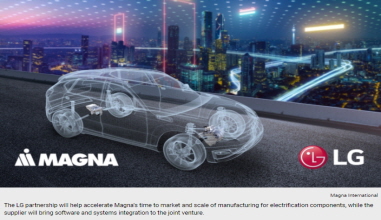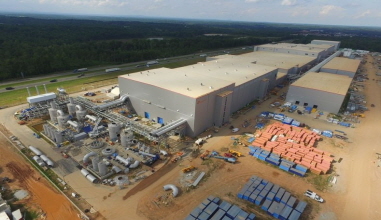Business & people
Littlestar expands to meet demand for molding high-performance polymers
By Michael Lauzon
![]()
▲ Phil Preston, founder and owner of Littlestar Plastics, in front of one of three new molding presses that allows Littlestar to injection mold high-end polymers such as PEEK and Torlon into components up to two pounds.
Littlestar Plastics Inc. is investing to strengthen its niche as an integrated manufacturer of large technical components from high-performance polymers.
The Machesney Park, Ill., company has installed new injection presses, more CNC machining equipment and testing equipment.
Littlestar founder Phil Preston said his company has spent more than $750,000 in the past three years on the various programs. He said in a phone interview that his firm’s vertical integration is a good business model in the competitive injection molding market.
“You can’t just stand there and shoot and ship parts,” Preston said.
Littlestar focuses on difficult jobs, many of them in aerospace where the company can get in the ground floor in new aircraft designs, using machining to create prototypes that then could become injection molded components. The company can ramp up production from a prototype to production runs of 250,000 parts.
Preston said Littlestar’s annual sales are between $10 million and $20 million.
Littlestar engineer Wray McKenzie said the firm regularly works with such high-performance resins as polyamide-imide, polyetherimide and polyetherketone. In fact, he was one of the pioneers in processing polyamide-imide when he was employed with Amoco, developer of the resin some 40 years ago. (Solvay now makes and markets Torlon brand polyamide-imide.) In the past six years since he joined Littlestar, he has been applying that experience to Littlestar’s work on parts as large as two pounds from polyamide-imide and its engineering polymer cousins.
With his background as an engineer, Preston founded his company in 1991 as a machine shop but he soon branched into plastics. One of his early customers needed a plastic part machined on a tight deadline. No plastics company was interested in the job but Littlestar took it on and delivered the part on time.
Now Littlestar makes and assembles components worth as much as $5,000 per unit in aerospace applications. Preston said his firm can machine parts that are near-net shape out of the injection press for prototypes and short production runs. This ability to use a combination of machining and injection molding makes Littlestar unusual among custom molders. It helps land the company new business such as making prototype parts for new commercial aircraft before they enter flight testing.
Customers in demanding industries such as aerospace, food service and medical “have no preference on how to make parts,” he explained.
“We push the process from one piece to production,” Preston added.
Littlestar runs 13 injection presses with clamping forces ranging from 40 to 360 tons. In the past year it installed five Nissei presses with servo-controlled hydraulic technology to allow high-pressure, high velocity molding. The new presses feature tight process control to ensure consistent packing and holding at high pressures.
Littlestar operates 17 CNC machining centers, including four-axis and five-axis vertical mills, with 120 tools. It does assembly, fabrication and ultrasonic welding, and can check results with an array of inspection equipment.
Preston said his firm hasn’t hired a sales force because it gets work mainly by word of mouth, backed by its engineering staff. He said Littlestar’s sales have grown each year, even during recessions in 2001 and 2009. Growth probably will spur the company in the next year to nearly double floor space from the current 30,000 square feet. Littlestar boasts that its parts are found in nearly every airplane recently built in the western hemisphere. Specialty parts such as a molded/machined robotic drink-filling arm are found on numerous food service machines such as fast food ice cream dispensers. Other key markets are medical and off-road transportation. The company is ISO 9001 and AS 9100 certified.
Preston said Littlestar’s new injection presses were bought partly to supply a new aerospace program and they have unused capacity to make parts about twice as big as the firm was able to handle before expansion and upgrading.

